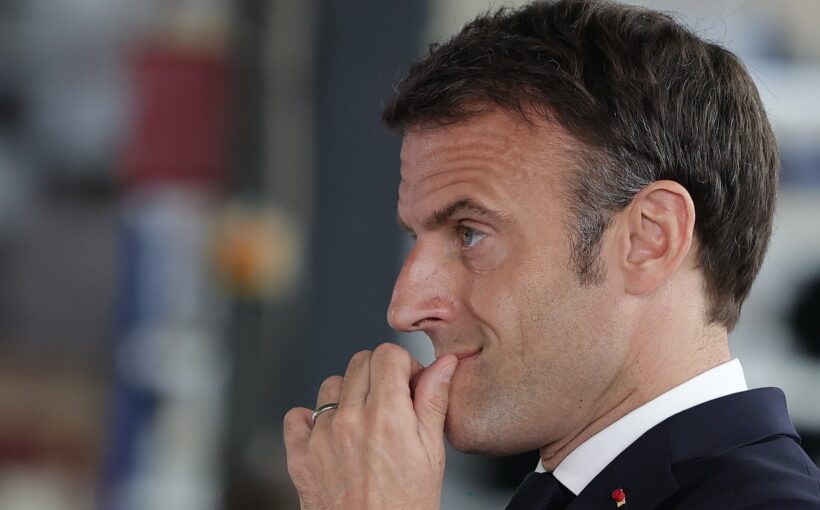PARIS — France is holding up a deal to expand NATO’s reach into Asia, opening a split in the Western security alliance on the eve of a vital summit next week.
For months, NATO officials have been discussing plans to open a liaison office in Japan, which would represent the allies’ first outpost in the region at a time of growing tension between the West and China.
Next week’s annual leaders’ summit in Lithuania —taking place against the backdrop of Russia’s war in Ukraine — was earmarked as a moment for making progress on the plan.
But French President Emmanuel Macron has put his foot down, insisting such geographical expansion would risk shifting the alliance’s remit too far from its original North Atlantic focus.
“We are not in favor as a matter of principle,” an Elysée Palace official told reporters on Friday. “As far as the office is concerned, the Japanese authorities themselves have told us that they are not extremely attached to it.”
The French official insisted that NATO is geographically confined to the North Atlantic. “NATO means North Atlantic Treaty Organization,” the official said, adding that Articles 5 and 6, clauses at the heart of the alliance, are “geographic.”
The plan by NATO to open its first Asian office comes amid heightened concern over China’s aggressive maritime and sea behavior toward Taiwan and U.S. troops in the region. Like France, China is also opposed to the idea.
“We have seen NATO bent on going east into this region, interfering in regional affairs and inciting bloc confrontation,” Chinese Foreign Ministry spokesman Wang Wenbin said last month. “The majority of Asian countries … oppose the emergence of military blocs in the region. They don’t welcome NATO’s outreach in Asia.”
While some other NATO allies are also said to have concerns over the new office, three European diplomats with knowledge of the ongoing negotiations acknowledge that the strongest opposition comes from France.
Macron has been opposed to an increased NATO focus on China for years. In 2021 he said after a NATO meeting that “we shouldn’t confuse our goals,” arguing that “NATO is a military organization, the issue of our relationship with China isn’t just a military issue. NATO is an organization that concerns the North Atlantic, China has little to do with the North Atlantic.”
NATO Secretary-General Jens Stoltenberg, on the other hand, has promoted deeper connections with Asia-Pacific allies. The leaders of Japan, South Korea, Australia and New Zealand will attend the NATO summit in Vilnius next week for the second year in a row.
“We should not make the same mistake with China and other authoritarian regimes,” Stoltenberg said in February. His comment was seen as drawing a link between Ukraine and Taiwan. “What is happening in Europe today could happen in Asia tomorrow,” he said.
Laura Kayali reports from Paris, and Stuart Lau reports from Brussels.


